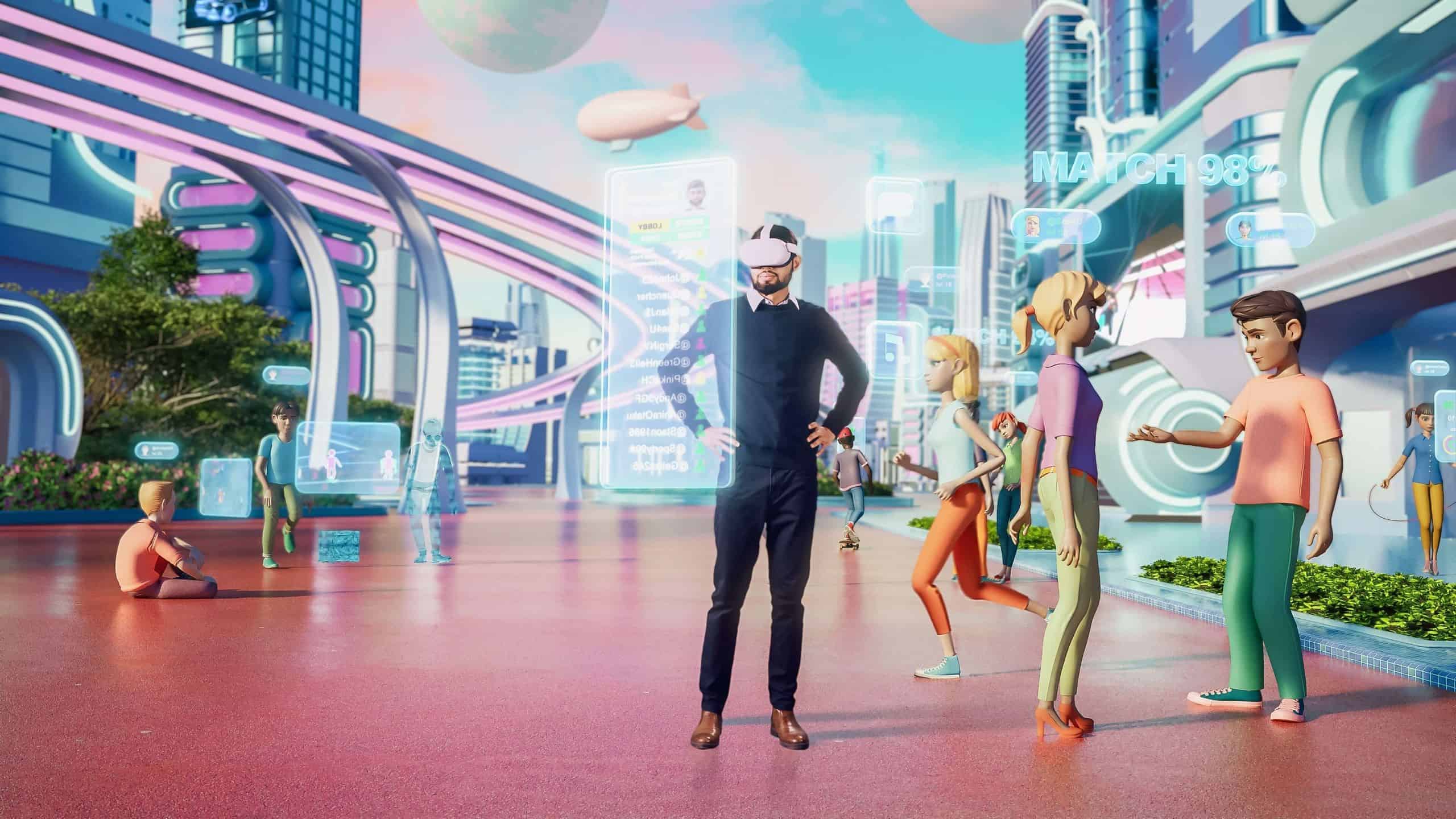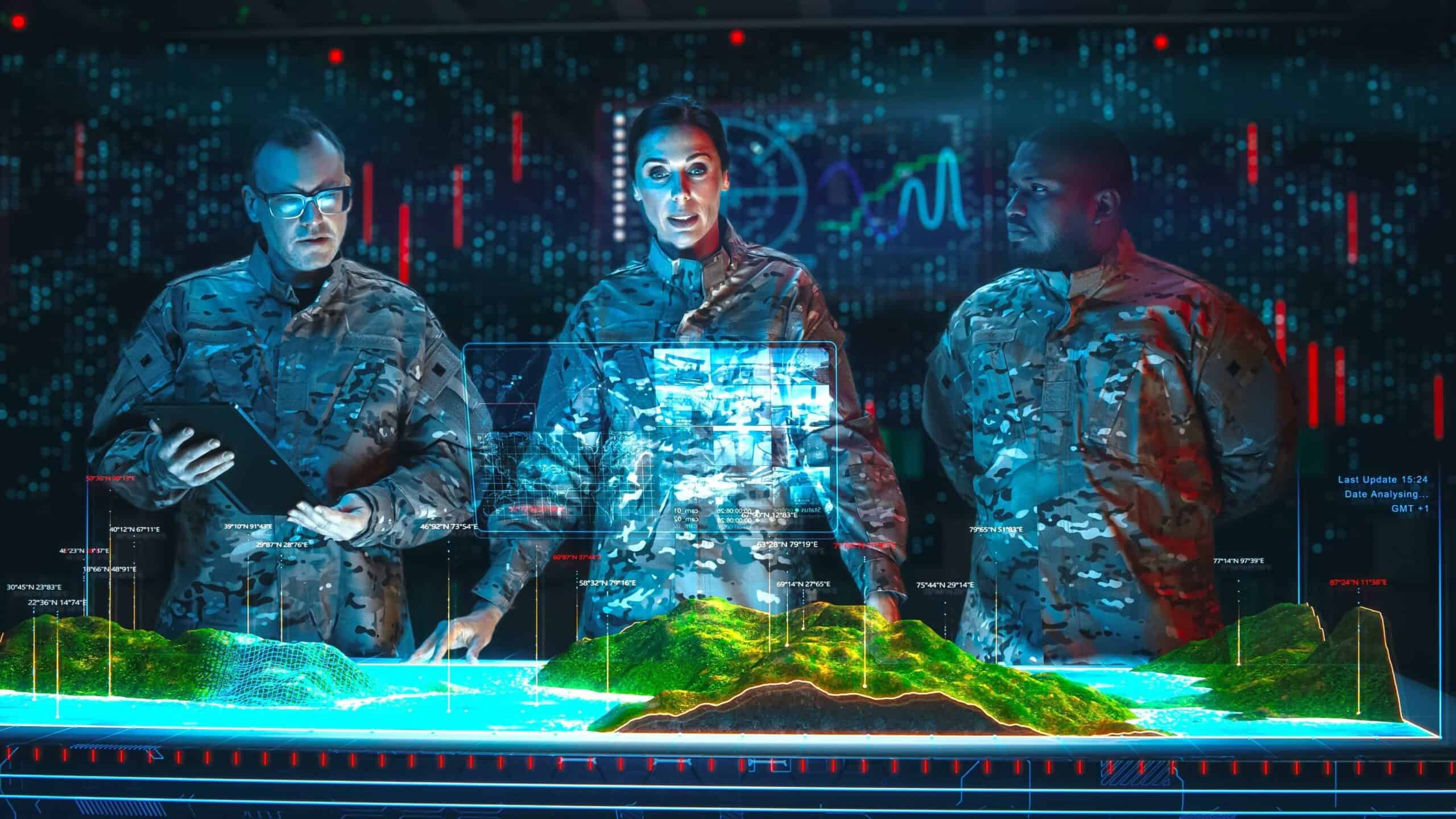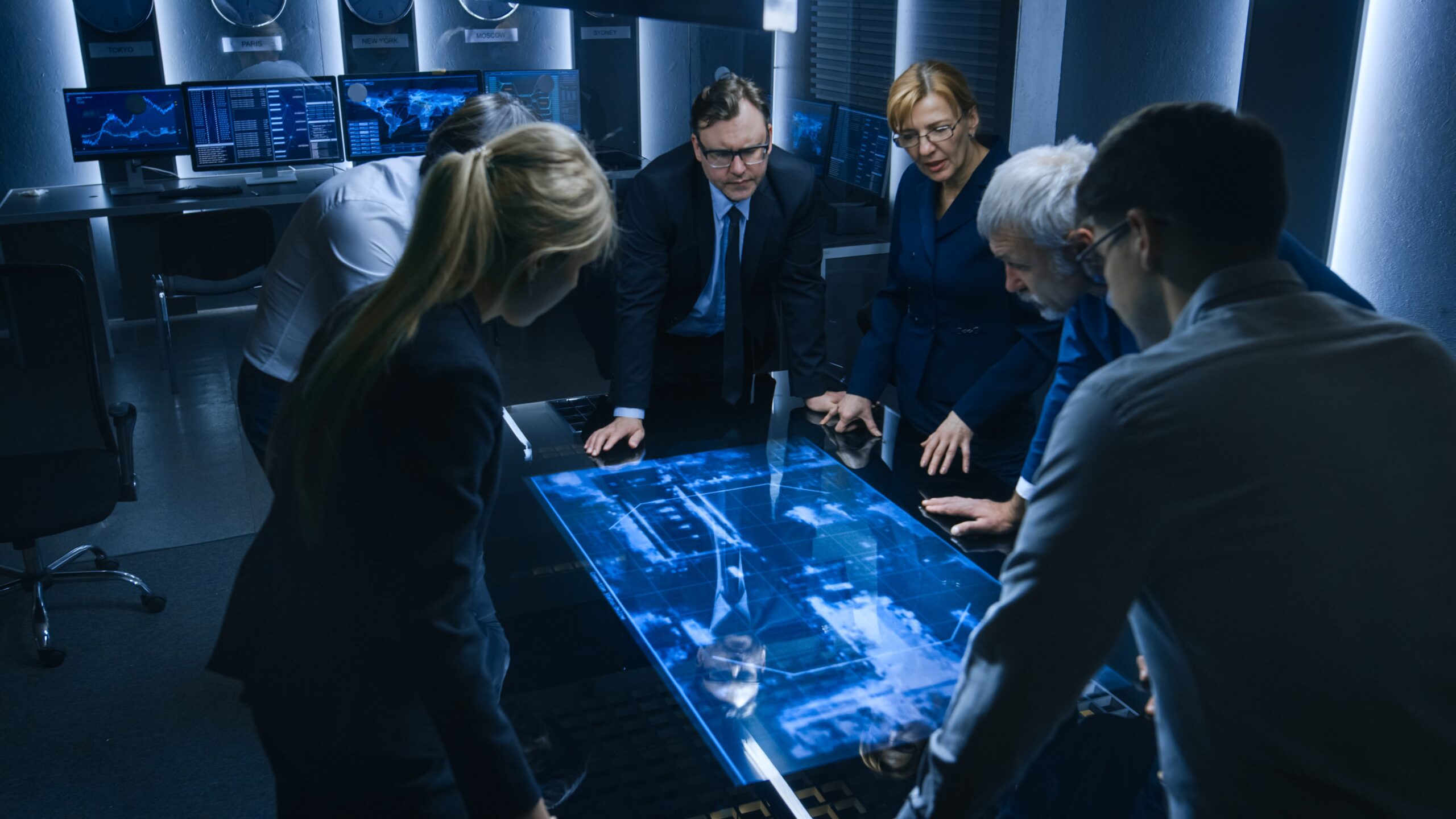- Executive summary
- Introduction: The metaverse—the next big thing?
- Explainer: A new way to interact with the urban environment
- Examples: Cities in the metaverse
- Experts: The metaverse will revolutionise our daily lives
- Experts: A mental health epidemic waiting to happen?
- The Numbers: Excitement tinged with caution
- Predictions: Living in a digital world
- Learnings
Executive summary:
Modern cities are faced with a wide array of challenges, requiring urban planners and policymakers to think creatively in order to ensure the wellbeing of their citizens. This is where the metaverse technology comes into play, enabling cities to enhance interaction with government services, facilitate virtual tourism, and support the design and maintenance of smart infrastructure.
- According to a 2022 KPMG survey, 36% of those familiar with the metaverse believe that it will have a significant impact over the next five years.
- Gartner predicts that 25% of people will spend at least one hour a day in the metaverse by 2026.
- Seoul, Tampere, and Saudi Arabia’s currently-under-construction ‘The Line’ are some of the cities working to establish a metaverse presence.
- “The metaverse will revolutionise our daily lives in the same way the internet once did”, proclaims Tiia Joki, development manager for growth, innovation, and competitiveness for the city of Tampere.
- “One great benefit that we could see from the metaverse being used is increased empathy in the planning process”, write Sam Hoey, lead designer at design company Designit, and Dr Timothy Pape, architect and urban cultural theorist at future design studio Hidden Strategy.
As technology continues to advance and the metaverse becomes increasingly difficult to distinguish from reality, more and more people will inevitably try to escape the hardships of real life by immersing themselves in virtual environments. How will this reflect on the physical world?
Introduction: The metaverse—the next big thing?
The metaverse—it’s a term that conjures images of infinite digital realms and has become a catchphrase for the next wave of technological evolution. Is it really the next big thing, though, or just another passing fad? While the answer to this question is still up in the air, that hasn’t deterred a number of cities from taking their first tentative steps into the virtual expanse.
As urban centres grapple with the multifaceted challenges of contemporary life, from economic pressures to infrastructural demands, the metaverse presents an intriguing opportunity to address some of those challenges. It’s not merely a playground for the technologically curious but a potential arena for significant advancement in how cities operate and serve their inhabitants.
The metaverse could become a valuable asset in complex urban landscapes, enabling cities to enhance interaction with government services, facilitate virtual tourism, and support the design and maintenance of smart infrastructure. It could even prove a powerful ally in the design of greener, more sustainable cities, assisting in the push towards net zero goals and circular economies.
Explainer: A new way to interact with the urban environment
The metaverse promises to change the way residents interact with the urban environment, but it’s not without risks.
In today’s cities, residents interact with the urban environment primarily through physical spaces and traditional services. They navigate using roads, sidewalks, and public transportation, relying on signs, maps, and personal knowledge to find their way around, and they engage with local businesses and public services either in person or through conventional online platforms. While many cities have begun to adopt smart technologies, such as data analytics and sensors integrated into the Internet of Things (IoT), to enhance urban management and services, the day-to-day experience of city life for most residents remains largely the same as ever.
The emergence of the metaverse could fundamentally change how citizens live, work, and interact within their urban environment. Instead of reading about a new local business or community event, residents could step inside it virtually and experience it firsthand, regardless of their physical location. They could also provide feedback, share ideas, and participate in decision-making processes through easy-to-attend interactive virtual forums, fostering a greater sense of community engagement. Moreover, the real-time data collected by the vast network of IoT sensors throughout the city would enable city officials to adapt and respond to changing conditions, resulting in more efficient public services, better urban planning, and a more sustainable and resilient city overall.
Despite these apparent benefits, creating digital replicas of our cities in the metaverse also presents significant challenges that must be carefully considered. The extensive collection of personal data through IoT sensors, cameras, and other monitoring systems raises serious concerns about privacy, surveillance, and the potential misuse of sensitive information. There is also a genuine risk that virtual spaces could inadvertently reinforce or even exacerbate existing social inequalities and biases, creating new forms of digital divide and exclusion.
“The metaverse will revolutionise our daily lives in the same way the internet once did”.
Tiia Joki, development manager for growth, innovation, and competitiveness in the city of Tampere
Examples: Cities in the metaverse
Several cities worldwide have either already established a presence in the metaverse or are planning to do so.
The first major city in the world to launch its own metaverse platform is the South Korean capital Seoul. Unveiled by the Seoul Metropolitan Government in January 2023, Metaverse Seoul enables citizens to access a wide range of city services in a virtual environment and enjoy various recreational activities. Among other things, citizens of Seoul can access official documentation, get help with their taxes, and even register complaints. The platform will also include a business support centre, where companies will be able to schedule virtual consultations with experts, which can be conducted through chat, voice, or video. Officials anticipate that citizens will eventually be able to access all of the city’s administrative services through the platform.
Another city looking to establish a metaverse presence is Tampere, Finland. In partnership with The Metaverse Institute, a leading strategy consulting organisation for the metaverse, the city recently launched the Tampere Metaverse Vision 2040, the world’s first “people-centred” metaverse strategy. The document outlines a future vision where technologies like artificial intelligence and the metaverse are woven directly into the social fabric of the city, improving the quality of life of citizens through intelligent, personalised services. This could open up new ways for every resident to have a say in how Tampere is run, making sure the municipal government is aware of what its people want and need.
The metaverse could prove particularly useful for cities that are still under construction. As the next stage in the development of ‘The Line’, a futuristic city currently being built in the sweeping sands of Saudi Arabia, NEOM Tech & Digital Company unveiled a metaverse platform called XVRS which will enable visitors to virtually explore various urban locations in the form of an avatar or a hologram. The platform will also include a digital recreation of every building in the city. It will even be possible to influence the future development of the city, with officials revealing they would consider building certain virtual properties in the real world if they prove particularly popular among virtual visitors.
Experts: The metaverse will revolutionise our daily lives
The metaverse could bring a wide range of benefits to urban planners and people living in cities alike.
As is the case with many disruptive new technologies, the metaverse is divisive. Tiia Joki, development manager for growth, innovation, and competitiveness in the city of Tampere, is convinced that the metaverse is the next big thing. “The metaverse will revolutionise our daily lives in the same way the internet once did”, proclaims Joki. “The rapid development of artificial intelligence and language models in recent years has been eye-opening for many. If the internet changed business models in a revolutionary way, AI and emerging technologies are a similar upheaval”.
Government officials, in particular, stand to benefit from the metaverse, according to Tom Winstanley, chief technology officer at IT consultancy NTT Data UK&I. Winstanley believes it can “safely simulate inefficient or dangerous situations in a city-wide context and implement changes proactively. Instead of collecting data and putting safeguards in place after an incident has occurred, planners can use the metaverse to stay ahead of the game. Gridlocks can be predicted, say, and traffic can be diverted before a problem escalates”.
Similar thoughts are echoed by Sam Hoey, lead designer at design company Designit, and Dr Timothy Pape, architect and urban cultural theorist at future design studio Hidden Strategy. “One great benefit that we could see from the metaverse being used is increased empathy in the planning process, as urban planners and government officials can better immerse themselves in the roles and experiences of others, creating greater understanding and context for future developments”, write Hoey and Pape. “The metaverse presents new opportunities for people living in these cities too. Imagine a future where community members can interact ‘face-to-face’ with building department personnel on the plans for their new shopping centre from the comfort of their own homes or even comment at a virtual public meeting from their office chairs”.
“The metaverse has the potential to increase the existing digital divide and inequalities in our cities”.
Sam Hoey, lead designer at design company Designit, and Dr Timothy Pape, architect and urban cultural theorist at future design studio hidden strategy
Experts: A mental health epidemic waiting to happen?
Some experts warn that the metaverse could have a detrimental impact on our mental health.
Many experts also express serious reservations about the technology. “I see two key infrastructure challenges. The first concerns networking capabilities. Replicating cities in the metaverse will involve streaming data from thousands, if not millions, of smart devices. Consolidating that material and making sense of it all will require new kinds of networking infrastructure”, explains Mimi Keshani, chief operating officer of Web 3.0 startup Hadean. “The second challenge concerns how we process all this data. Cloud and edge computing have opened access to more and ‘nearer’ computing power, but scaling up applications across so many disparate machines is problematic”.
While adamant that the metaverse will have a net positive impact on society, Hoey and Pape acknowledge there are challenges ahead. “To access the metaverse, people need a device and enough internet bandwidth to connect to it, so when thinking of the infrastructure that needs to be in place to optimise the use of the metaverse in cities and local governments, it is likely that both physical and non-physical structures will be required”, they say. “Otherwise, the metaverse has the potential to increase the existing digital divide and inequalities in our cities”.
“I think we’ve progressed far enough as a society to recognize that almost every seemingly useful technology has downsides: cars destroy the climate. Smartphones make us anxious. Flying cars will favour the wealthy”, adds Josh Stephens, contributing editor to the California Planning and Development Report and a freelance writer specialising in urban planning. “So, I think it’s obvious that however useful the metaverse may be for meetings with the sales team and maybe some new genre of theatre (pornographic or otherwise), the metaverse is a mental health epidemic waiting to happen. The past two decades of life on screen have been anything but nurturing; what could possibly go wrong when the “screen” is all-encompassing?”
The Numbers: Excitement tinged with caution
Surveys suggest that both consumers and business leaders are excited about the metaverse, but some concerns remain.
Although the metaverse remains a nascent technology, it appears there is already a great deal of excitement surrounding it. A 2022 survey conducted by PwC found that 50% of consumers consider the metaverse exciting. However, only 9% of respondents say that they are actively participating in any of the existing environments. While adoption is low at present, this could change sooner than you may expect.
According to a 2022 KPMG survey, 36% of those familiar with the metaverse believe that it will have a significant impact over the next five years, while one-third say that they are open to participation. Management consulting company Gartner predicts that 25% of people will spend at least one hour a day in the metaverse by 2026, either for work, education, shopping, social, or entertainment. Some consumers appear more enthusiastic still, with 46% of respondents in a 2024 survey from customer service platform Tidio stating they believe people will live and coexist mainly in the metaverse by 2034.
The excitement is palpable among business leaders as well, with 95% of respondents in a 2022 McKinsey survey saying they expect the metaverse to have a positive impact on their industry within the next five to ten years. Gartner further predicts that 30% of organisations worldwide will have products and services in the metaverse by 2026. This optimism regarding the metaverse’s potential is also reflected in estimates of its potential economic value. McKinsey, for example, estimates that the consumer and enterprise use cases for the metaverse could generate up to US$5 trillion by 2030.
As is often the case with new technologies, however, there is also a fair amount of apprehension. According to a 2022 survey by management consultancy Momentive, 32% of consumers find the metaverse “scary”. Nearly 77% of respondents in Tidio’s survey also indicated their belief that the metaverse could cause “serious harm” to modern society. These figures indicate that there is still some way to go before the technology is universally accepted.
Predictions: Living in a digital world
As we spend more and more time in a virtual environment, could we start to neglect the physical world?
In reality, virtual environments currently lack the sophistication and immersiveness required to approximate the sheer complexity of real-world cities. However, as technology continues to advance at a rapid pace, it is likely only a matter of time before the metaverse becomes indistinguishable from reality. People may soon be able to work, learn, socialise, and pursue their passions in virtual spaces, allowing them to lead rich and fulfilling digital lives. It is not too hard to imagine a future where some people choose to spend the majority of their time, or even their entire lives, within these immersive digital realms.
As more and more people immerse themselves in virtual worlds, however, we may find ourselves in a serious predicament. The allure of the metaverse may draw attention and resources away from addressing the pressing issues that plague real cities, including poverty, inequality, pollution, and deteriorating infrastructure. As the privileged retreat into their digital havens, the less fortunate may be left to navigate an increasingly inhospitable urban landscape. Moreover, spending excessive amounts of time in virtual environments may have detrimental effects on mental health, social skills, and our ability to form meaningful connections with others in the real world.
Learnings:
As cities around the globe embrace the metaverse, we can expect to witness a major transformation in the way we work, learn, and play within urban settings. The integration of this innovative technology into our daily lives will continue to blur the lines between physical and digital environments, ultimately redefining our understanding of what it means to live in a city.
- The metaverse could enable cities to streamline administrative services, enhance citizen engagement, and drive sustainability efforts.
- 50% of consumers consider the metaverse “exciting”, according to a 2022 PwC survey.
- Gartner predicts that 30% of organisations worldwide will have products and services in the metaverse by 2026.
- McKinsey estimates that the consumer and enterprise use cases for the metaverse could generate up to US$5 trillion by 2030.
- Some experts warn that increased focus on virtual environments could divert attention from real-world issues and exacerbate existing inequalities.
As we stand at the cusp of this new digital frontier, one must wonder about the potential challenges the metaverse might bring. What happens to the traditional fabric of our cities when virtual interactions become as commonplace as physical ones? And, perhaps more importantly, how will the inevitable digital divide affect the urban experience for those less connected or not so technologically adept? Could the metaverse, in its quest to build a more integrated and efficient urban future, inadvertently create a new kind of inequality?




